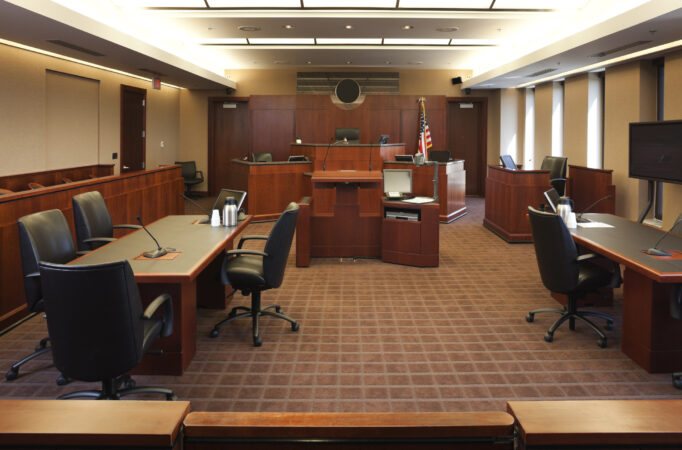Litigation: Latest Legal Blogs and News
Step Aside Subcontractors, Open-ended Mortgages Take Priority
Legislature clarifies open-ended mortgage priority in response to confusion created by Kessler.
A recent amendment to the Pennsylvania Mechanic’s Lien Law, effective September 7, 2014, clarifies that as long as at least 60% of the proceeds of an open-ended mortgage are intended to pay or are used to pay all or part of the costs of construction, a mechanic’s lien is subordinate to the open-ended mortgage, regardless of whether the open-ended mortgage was obtained from a lender after the commencement of work. A definition of “costs of construction” has also been added as part of the amendment and now specifically includes “soft costs” such as surveys, testing, legal and accounting fees as well as payoffs of existing mortgages and recorded liens.
This change and new definition “shall apply to liens perfected on or after the effective date [September 7, 2014] . . . . .including liens pertaining to the construction of an improvement for which the visible commencement of work occurred prior to the effective date of this section, [September 7, 2014] but were not perfected until on or after the effective date of this section.”
Presumably a result of lobbying efforts by lenders, this amendment is clearly in direct response to the Superior Court decision rendered in Commerce Bank/Harrisburg, N.A. v. Stephen F. Kessler and Lisa K. Kessler in May of 2012 which interpreted section 1508(c) of the mechanics lien law to require that all of the proceeds of an open-end mortgage had to be used to pay for the cost of construction in order to entitle an open-end mortgage to priority over mechanic’s liens. Up to this point, the common practice was to award priority regardless of whether any portion of the loan was also used for “soft costs”.
Amendment to Mechanic’s Lien Law also limits subcontractors’ lien rights
This amendment to the Mechanic’s Lien Law also limits subcontractors’ (including sub-subcontractors) mechanic’s lien rights for improvements made to residential property. Subcontractors can no longer assert a mechanic’s lien if:The owner or tenant paid in full the contract price to the contractor.
- The property is or is intended to be used as the residence of the owner or subsequent to occupation by the owner, a tenant of the owner; and
- The residential property is a single townhouse or a building that consists of one or two dwelling units used, intended or designed to be built, used, rented or leased for living purposes.
This amendment gives an owner or tenant the ability to file a petition with the court to strike a subcontractor’s mechanic’s lien in whole if the entire contract price was paid to the general contractor. Moreover, this amendment gives an owner or tenant the ability to file a petition with the court to reduce a subcontractor’s mechanic’s lien claim to the remaining unpaid balance of the contract with the general contractor.
About Us
The litigation attorneys at Houston Harbaugh, P.C., are accomplished business trial lawyers, providing comprehensive support in litigation across a broad spectrum of matters throughout Pennsylvania, West Virginia, Ohio and other jurisdictions upon a special admission basis. Our clients are regional and national small, medium and large companies and individuals who seek well planned and aggressive, but cost effective litigation. We counsel, we budget, we have a deep bench, we act quickly when needed and we have experienced trial lawyers who know the courts and bench. We serve regularly as local counsel for some of the largest law firms in the country when they have matters in this region.

Henry M. Sneath - Practice Chair
Co-Chair of Houston Harbaugh’s Litigation Practice, and Chair of its Intellectual Property Practice, Henry Sneath is a trial attorney, mediator, arbitrator and Federal Court Approved Mediation Neutral and Special Master with 98 trial verdicts and extensive federal and state court trial experience in cases involving commercial disputes, breach of contract litigation, Artificial Intelligence (AI), intellectual property matters, patent, trademark and copyright infringement, trade secret misappropriation, DTSA claims, cyber security and data breach prevention, mitigation and litigation, employment and restrictive covenant litigation, probate trusts and estates litigation, construction claims, eminent domain, professional negligence lawsuits, pharmaceutical, products liability and catastrophic injury litigation, insurance coverage, and insurance bad faith claims. DTSALaw® Business Litigation. Pittsburgh Strong.®

Samuel H. Simon - Practice Chair
As co-chair of Houston Harbaugh’s Litigation Group, Sam focuses his practice on commercial/business litigation. Sam regularly represents clients in the construction, manufacturing, oil and gas, and wholesale/retail/ distribution industries, as well as individuals in matters such as:
- Construction litigation
- Environmental litigation
- Breach of contract disputes
- Oil and gas litigation
- Negligence
- Restrictive covenants (non-compete agreements)
- Civil rights
- Collections/creditors’ rights
- Lease disputes

